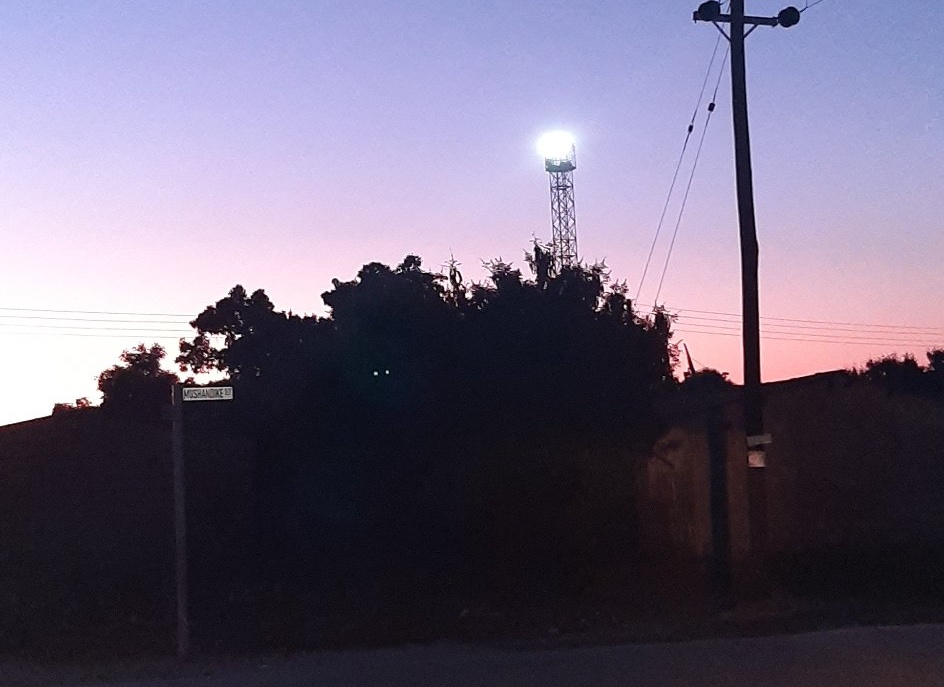In response to the Zimbabwe Electricity Transmission and Distribution Company’s (ZETDC) recent shift of tower lights to a prepaid system, the Bulawayo City Council (BCC) has announced plans to install solar-powered streetlights throughout the city.
This initiative is part of a broader strategy to enhance urban infrastructure while embracing sustainable energy solutions.
The move comes after residents struggled with inadequate street lighting following ZESA’s disconnection of some tower lights and traffic lights, prompting calls for the local authority to find alternative solutions.
During full council meetings, several councillors suggested transitioning to solar-powered tower lights as a cost-cutting measure.
BCC’s decision to invest in solar streetlights presents a promising solution, providing consistent illumination throughout the night regardless of electricity supply challenges.
Speaking at a recent budget consultation meeting in Ward 17, Engineer Howard Sibanda highlighted some of the challenges the local authority has been facing.
“This year, ZESA decided that all tower lights in Bulawayo would be switched to a prepaid system. There are still areas where this change is being implemented. Another challenge we face is vandalism, which significantly affects our tower lights,” he said.
Engineer Sibanda also mentioned that the local authority has issued a tender to procure new lights to replace those lost to vandalism.
“We have found a supplier for the new lights, and as soon as they arrive, we will conduct a citywide installation exercise. However, the biggest challenge now is that it’s a prepaid system. As a council, we traditionally offer services first, but ZESA requires upfront payment, so we are still working to resolve those challenges,” he added.
Additionally, BCC Procurement Officer Patson Nyathi reassured residents that the local authority is considering solar investment as a long-term solution to street lighting.
“As the Council, we agreed with the engineering department not to burden the residents. To keep the city well-lit, we plan to install solar lights and move away from reliance on ZESA, as each tower light costs around US$77 a month, which we simply cannot afford.”
“We’re exploring solar as a permanent solution that will benefit everyone and reduce the ZESA bill,” Nyathi concluded.
Subscribe to the Asakhe Daily Newsletter for the latest news, job opportunities and scholarships.
Click here: https://mailchi.mp/cite.org.zw/aiqk1s0sg9?ct=t(EMAIL_CAMPAIGN_4_26_2024_16_27_COPY_01)&mc_cid=e38acab6d7&mc_eid=081f70b81c

